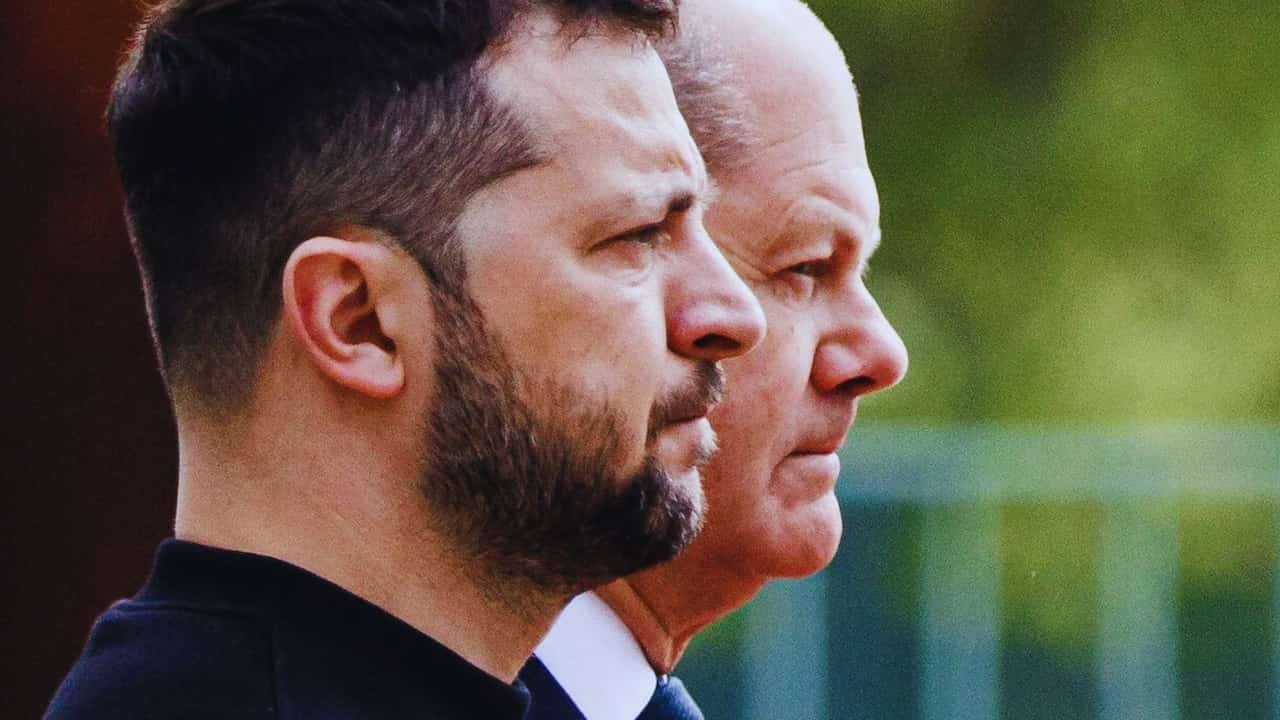Breaking the Silence: Scholz’s Controversial Call with Putin Raises Stakes in Ukraine Crisis
In a dramatic turn of events that has sent ripples through the international community, German Chancellor Olaf Scholz broke nearly two years of diplomatic silence with a crucial phone call to Russian President Vladimir Putin.
The hour-long conversation, their first since December 2022, has sparked intense debate about its timing and potential consequences for the ongoing conflict in Ukraine.
The call, which German officials confirm came at Berlin’s initiative, centered on several critical issues. Most notably, Scholz confronted Putin about what he referred to as a “grave escalation”—the reported deployment of North Korean troops in Ukraine. This unprecedented development has raised serious concerns about the conflict’s expanding scope and potential implications for global security.
Volodymyr Zelenskyy, the President of Ukraine, promptly expressed his concerns, cautioning that the call had unlocked a plethora of diplomatic complexities.
In his evening address, Zelenskyy expressed concern that this contact could weaken international efforts to isolate Putin, potentially leading to “more conversations, more calls, just a lot of words”—exactly what he believes the Russian leader wants.
During the conversation, Scholz maintained a firm stance on several key points:
- He called for an immediate end to Russian aggression.
- The demand was made for the withdrawal of Russian forces from Ukraine.
- I have pushed for fair and lasting peace negotiations.
- Condemned Russian airstrikes on civilian targets
- Reaffirmed Germany’s commitment to supporting Ukraine
The Russian response, however, showed little sign of compromise. The Kremlin’s statement revealed that Putin insisted any peace deal must acknowledge what he called “new territorial realities”—a reference to Russian-occupied Ukrainian territories. Putin also doubled down on his narrative about NATO expansion, claiming the conflict resulted from the alliance’s “aggressive policy” in Eastern Europe.
The timing of this diplomatic outreach is particularly significant. With Germany facing snap elections in February and Scholz’s coalition government recently collapsed, domestic political pressures are mounting. The rise of far-right AfD and far-left BSW parties, both critical of the government’s Ukraine policy, has added urgency to peace initiatives.
The international context adds another layer of complexity. Speculation about Donald Trump’s potential return to the U.S. presidency has raised questions about future Western support for Ukraine.
Trump’s campaign promises to resolve the conflict within 24 hours, though light on details, have created uncertainty about long-term U.S. commitment to Ukraine’s cause.
Germany’s role in this conflict represents a dramatic shift from its traditional approach to Russian relations. Once linked through strong trade and energy ties, Berlin has become Ukraine’s second-largest military and financial supporter after the U.S. This transformation came after Putin’s invasion shattered decades of German policy aimed at maintaining peace through economic integration.
The call’s aftermath leaves more questions than answers. While the Kremlin described it as a “detailed and frank exchange of opinions” and “positive,” the practical implications remain unclear. Both leaders agreed to maintain contact, but with such divergent views on the conflict’s resolution, the path to peace appears as challenging as ever.
For Scholz, walking the diplomatic tightrope between engagement and firmness is crucial. With Germany’s economy feeling the war’s impact and elections looming, he must balance domestic pressures with international responsibilities.
However, the risk of appearing to negotiate over Ukraine’s head—particularly given Germany’s historical context—adds another layer of complexity to his diplomatic efforts.
As the conflict approaches its 1,000th day, this unexpected diplomatic contact marks a significant moment in the ongoing crisis. Whether it represents a potential breakthrough or, as Zelenskyy fears, a dangerous precedent, only time will tell. What’s clear is that the international community watches closely as this new chapter in the Ukraine crisis unfolds.
